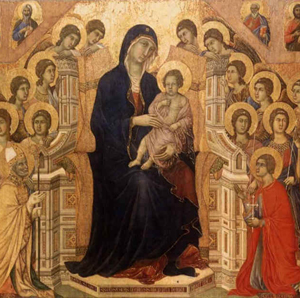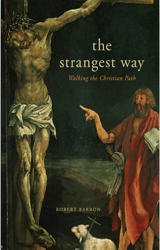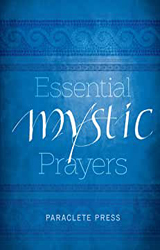16 April 2023: Second Sunday of Easter or Divine Mercy Sunday
The Lord is not looking for perfect Christians; the Lord is not looking for Christians who never doubt and always flaunt a steadfast faith. When a Christian is like that, something isn’t right. No, the adventure of faith, as for Thomas, consists of lights and shadows. Otherwise, what kind of faith would that be? It knows times of comfort, zeal and enthusiasm, but also of weariness, confusion, doubt and darkness. The Gospel shows us Thomas’ “crisis” to tell us that we should not fear the crises of life and faith. Crises are not sins, they are part of the journey, we should not fear them. Many times, they make us humble because they strip us of the idea that we are fine, that we are better than others. Crises help us to recognize that we are needy: they rekindle the need for God and thus enable us to return to the Lord, to touch his wounds, to experience his love anew as if it were the first time. Dear brothers and sisters, is better to have an imperfect but humble faith that always returns to Jesus, than a strong but presumptuous faith that makes us proud and arrogant. Woe to those, woe to them!
(Pope Francis, II Sunday of Easter, Divine Mercy, 24 April 2022)
 First Reading
First Reading
Acts of the Apostles 2:42-47
The first community of Christians grows as its members meet to pray and break bread.
Responsorial Psalm
Psalm 118:2-4,13-15,22-24
God’s love is everlasting.
Second Reading
1 Peter 1:3-9
We have new hope because of Jesus’ Resurrection.
Gospel Reading
John 20:19-31
Thomas believes because he sees Jesus.
Gospel: John 20:19-31
On the evening of that first day of the week,
when the doors were locked, where the disciples were,
for fear of the Jews, Jesus came and stood in their midst and said to them, “Peace be with you.”
When he had said this, he showed them his hands and his side.
The disciples rejoiced when they saw the Lord.
Jesus said to them again, “Peace be with you.
As the Father has sent me, so I send you.”
And when he had said this, he breathed on them and said to them,
“Receive the Holy Spirit. Whose sins you forgive are forgiven them,
and whose sins you retain are retained.”
Thomas, called Didymus, one of the Twelve, was not with them when Jesus came.
So the other disciples said to him, “We have seen the Lord.”
But he said to them, “Unless I see the mark of the nails in his hands
and put my finger into the nail marks and put my hand into his side, I will not believe.”
Now a week later his disciples were again inside and Thomas was with them.
Jesus came, although the doors were locked, and stood in their midst and said, “Peace be with you.”
Then he said to Thomas, “Put your finger here and see my hands,
and bring your hand and put it into my side, and do not be unbelieving, but believe.”
Thomas answered and said to him, “My Lord and my God!”
Jesus said to him, “Have you come to believe because you have seen me?
Blessed are those who have not seen and have believed.”
Now, Jesus did many other signs in the presence of his disciples that are not written in this book.
But these are written that you may come to believe that Jesus is the Christ, the Son of God,
and that through this belief you may have life in his name.
Reflection
 Divine Mercy Sunday celebrates the merciful love of God shining through the Easter Triduum and the whole Easter mystery. The feast recovers an ancient liturgical tradition, reflected in a teaching attributed to St. Augustine about the Easter Octave, which he called "the days of mercy and pardon," and the Octave Day itself "the compendium of the days of mercy."
Divine Mercy Sunday celebrates the merciful love of God shining through the Easter Triduum and the whole Easter mystery. The feast recovers an ancient liturgical tradition, reflected in a teaching attributed to St. Augustine about the Easter Octave, which he called "the days of mercy and pardon," and the Octave Day itself "the compendium of the days of mercy."
Pope John Paul II's interest in Divine Mercy goes back to the days of his youth in Krakow when Karol Wojtyla was an eyewitness to so much evil and suffering during World War II in occupied Poland. He witnessed the round ups of many people who were sent to concentration camps and slave labour.
In his hometown of Wadowice, he had many Jewish friends who would later die in the Holocaust. During that time of terror and fear, Karol Wojtyla decided to enter Cardinal Sapieha's clandestine seminary in Krakow. He experienced the need for God's mercy and humanity's need to be merciful to one another.
At the beginning of his pontificate in 1981, Pope John Paul II wrote an entire encyclical dedicated to Divine Mercy -"Dives in Misericordia" (Rich in Mercy) -illustrating that the heart of the mission of Jesus Christ was to reveal the merciful love of the Father.
In 1993, when Pope John Paul II beatified Sister Faustina Kowalska, he stated in the homily for her beatification mass: "Her mission continues and is yielding astonishing fruit. It is truly marvelous how her devotion to the merciful Jesus is spreading in our contemporary world, and gaining so many human hearts!"
In the Jubilee year 2000, Pope John Paul II canonized Sister Faustina... Pope John Paul II spoke these words in the homily: "Jesus shows His hands and His side [to the Apostles]. He points, that is, to the wounds of the Passion, especially the wound in His Heart, the source from which flows the great wave of mercy poured out on humanity." From: A Wave of Mercy Flows From the Wound in His Heart Biblical Reflection for Divine Mercy Sunday by Father Thomas Rosica, CSB






















